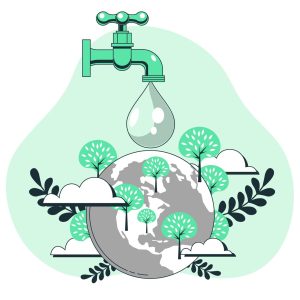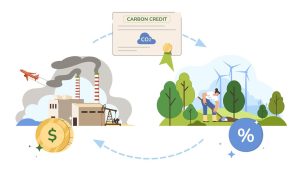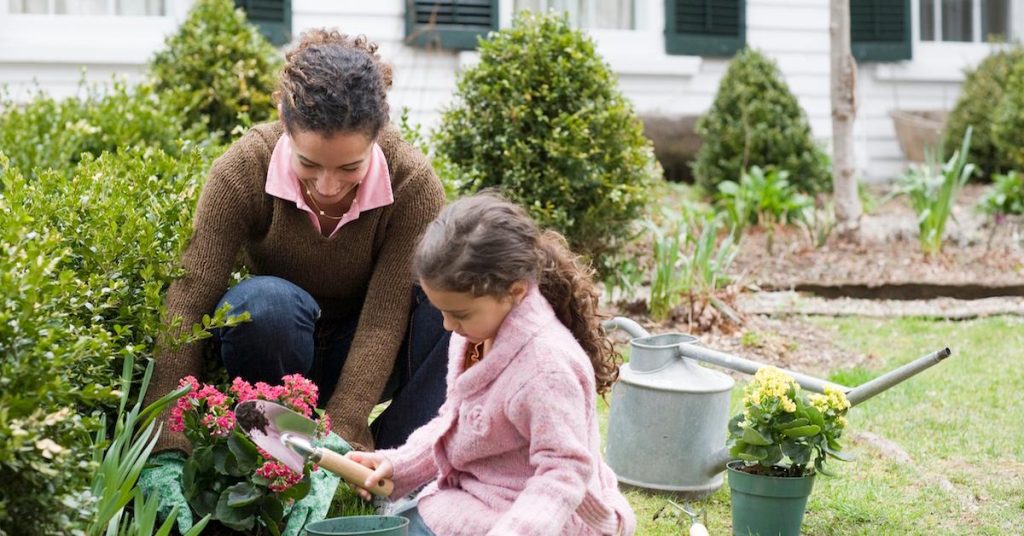Table of Contents
ToggleGardening helps the environment by reducing carbon footprint and promoting biodiversity. It increases green spaces in urban areas, providing habitats for wildlife and improving air quality.
Additionally, gardening helps to conserve water, prevent soil erosion, and sequester carbon dioxide. Engaging in gardening activities like planting trees, vegetables, and flowers can positively impact the environment by creating a sustainable ecosystem.
By cultivating native plants, reducing the use of harmful chemicals, and composting organic waste, individuals can contribute to environmental conservation efforts.
Additionally, gardening can serve as a way to educate communities about sustainability and promote eco-friendly practices. Overall, gardening plays a significant role in protecting the environment and fostering a more sustainable future for generations to come.

Reducing Carbon Footprint
Reducing carbon footprint is crucial for the environment, and gardening is an effective way to contribute to this effort.
By practicing sustainable gardening techniques, individuals can play a significant role in minimizing their carbon emissions and promoting a more eco-friendly lifestyle.
Composting
Gardening offers the opportunity to reduce carbon footprint through composting. Composting organic waste materials like fruit and vegetable scraps, yard trimmings, and coffee grounds enables the creation of nutrient-rich soil amendments.
This process reduces the amount of organic waste sent to landfills, where it would contribute to the production of methane – a potent greenhouse gas.
By composting this material, individuals can minimize their own carbon footprint and support a healthier environment.
Planting Trees
Another effective way gardening helps to reduce carbon footprint is through planting trees. Planting trees is an excellent method for sequestering carbon dioxide from the atmosphere. Trees absorb carbon dioxide during photosynthesis and store it in their biomass, thus playing a vital role in mitigating greenhouse gas emissions.

Conserving Water
Gardening plays a crucial role in conserving water resources for the environment.
Rainwater Harvesting
Collecting rainwater reduces reliance on municipal sources and helps in sustainable water management.
Mulching
Mulching conserves moisture in the soil, reducing the need for frequent watering.
Preserving Biodiversity
Start of the blog post section about Preserving Biodiversity
Gardening plays a crucial role in preserving biodiversity by creating diverse habitats for a variety of plants and animals.

Creating Habitat
When you cultivate a garden, you provide a safe space for insects, birds, and other wildlife.
- Plants offer hiding spots and nesting areas for creatures.
- It becomes a mini ecosystem where different species can thrive.
Planting Native Species
Selecting indigenous plants contributes significantly to biodiversity preservation.
- Native species require less water and maintenance.
- They attract local pollinators, helping in the pollination process.
End of the section about Preserving Biodiversity

Improving Air Quality
Gardening has numerous environmental benefits, one of the most significant being its positive impact on air quality. The process of gardening supports the reduction of air pollutants and the release of oxygen, ultimately leading to cleaner, fresher air. Let’s delve into how gardening contributes to improving air quality.
Absorbing Pollutants
In urban areas, where pollution levels are often high, plants play a crucial role in improving air quality by absorbing harmful pollutants. The leaves and stems of plants act as a natural filter, trapping pollutants such as nitrogen dioxide and sulfur dioxide. Through this process, gardens can effectively remove toxins from the air, thus reducing their impact on human health and the environment.
Releasing Oxygen
Gardens are vital in the production of oxygen, essential for human and animal life. Through the process of photosynthesis, plants release oxygen into the atmosphere, contributing to cleaner and healthier air. This oxygen release is especially beneficial in urban environments, where green spaces are limited, and pollution levels are notably higher.
Promoting Sustainable Food Production
Gardening plays a vital role in promoting sustainable food production and positively impacting the environment. By growing our own food, we reduce the need for transportation, pesticides, and packaging, while also increasing air quality and maintaining biodiversity.
Growing Organic
One of the key ways gardening promotes sustainable food production is through growing organic produce. Organic gardening practices rely on natural methods of pest control, nutrient management, and weed control, rather than synthetic chemicals or genetically modified organisms (GMOs). By avoiding the use of harmful pesticides and chemical fertilizers, organic gardening helps to protect the environment and preserve biodiversity.
Organic gardens also help to reduce water pollution. When synthetic pesticides and fertilizers are used in conventional gardening, they can leach into nearby water sources, contaminating rivers, lakes, and groundwater. In contrast, organic gardening practices promote the use of natural, biodegradable inputs that are safer for the environment.
Furthermore, organic gardens promote soil health and fertility. Organic matter, such as compost and mulch, is added to the soil to improve its structure and nutrient content. This helps to create a thriving ecosystem of beneficial organisms, such as earthworms and beneficial bacteria, that support plant growth and natural pest control.

Reducing Food Miles
In addition to growing organic produce, gardening promotes sustainable food production by reducing food miles. Food miles refer to the distance that food travels from the farm to the consumer. Commercial produce often travels long distances, sometimes even crossing continents, before it reaches the supermarket shelves.
By growing your own food in your garden, you eliminate the need for long-distance transport. This reduces the carbon footprint associated with food transportation, helping to combat climate change. Additionally, the freshness and taste of homegrown produce are unparalleled, as it can be harvested and consumed at its peak ripeness.
Home gardening also allows you to grow a wider variety of fruits, vegetables, and herbs, including heirloom and uncommon varieties. This promotes biodiversity and helps to preserve traditional and rare plant species. By diversifying our food systems and growing a wider range of crops, we can reduce the risk of crop failures and increase resilience in the face of climate change and emerging pests and diseases.
FAQs On How Gardening Helps The Environment
How Does Gardening Help The Community?
Gardening provides fresh produce, fosters community engagement, and beautifies neighborhoods. It promotes physical activity and mental well-being. It also encourages sustainable living and environmental consciousness. Overall, gardening strengthens community bonds and improves overall quality of life.
How Does Growing Plants Help The Environment?
Growing plants helps the environment by absorbing carbon dioxide, producing oxygen, reducing air pollution, and providing habitats for wildlife.
What Are 3 Benefits Of Gardening?
Gardening benefits include stress reduction, improved mental health, and increased physical activity.
Why Is Gardening Good For The World?
Gardening is good for the world as it promotes biodiversity, reduces air pollution, and conserves water. It also provides healthy, organic food and supports local ecosystems. Furthermore, gardening helps to reduce carbon footprint and improves mental and physical well-being.
Conclusion
Incorporating gardening into our lives can significantly contribute to creating a more sustainable environment. By planting native species, reducing carbon emissions, and improving air quality, gardening has far-reaching benefits. With a little effort and commitment, we can all play a part in making our planet a healthier and greener place to live.
Does Gardening Improve Mental Health? Discover the Healing Power of Gardening

